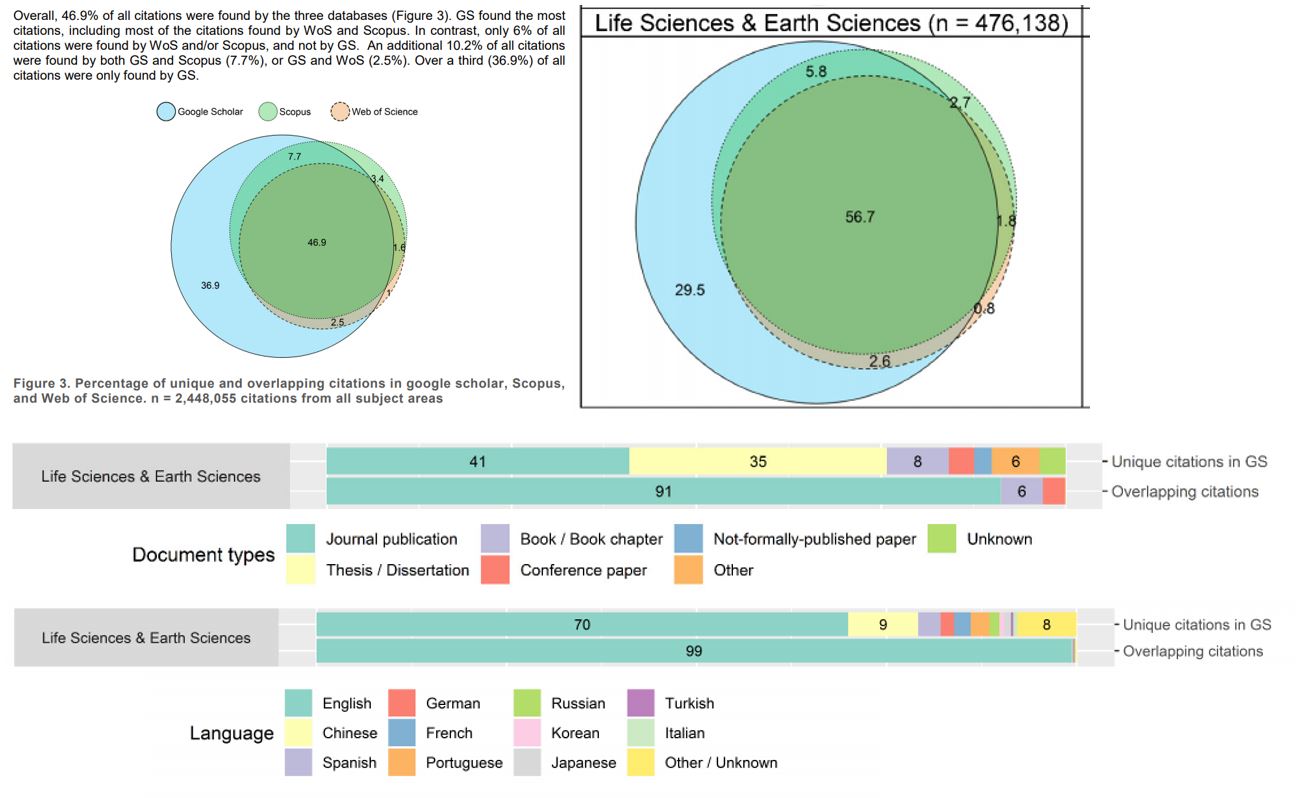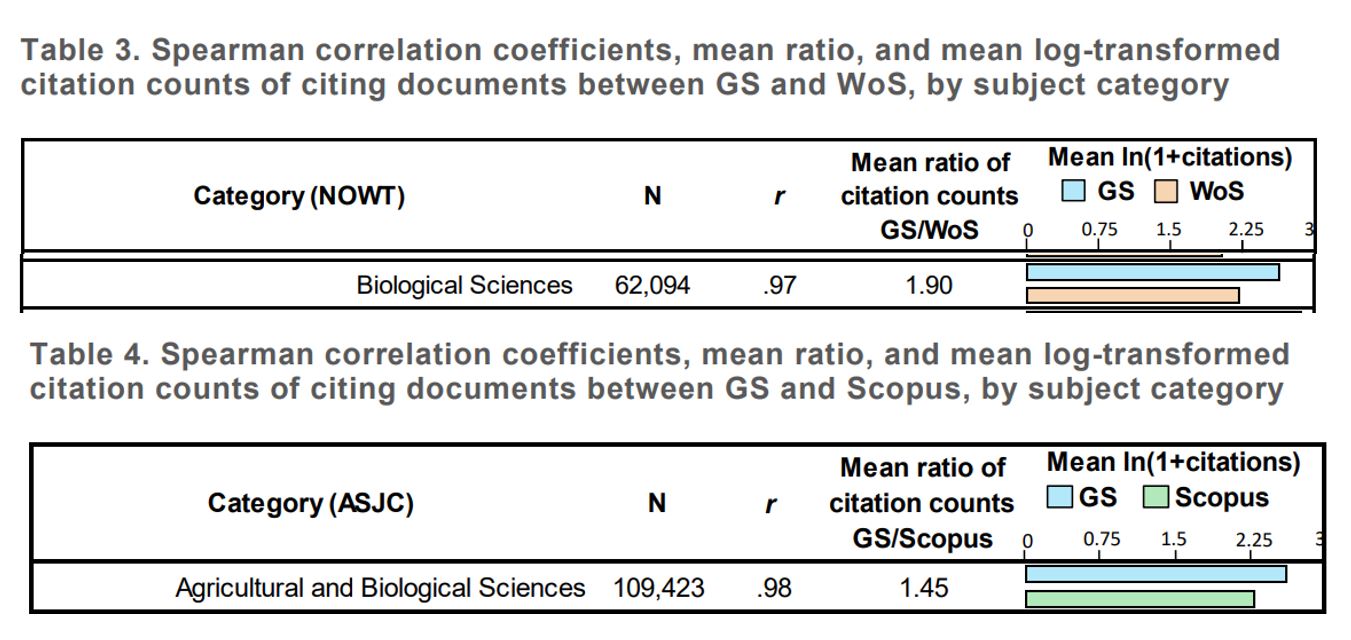GS, WoS or Scopus - what's the difference?
Have you ever wondered why Google Scholar (GS) scores are so inflated compared to other citation databases like Web of Science (WoS) or Scopus? I've always noticed that Scopus has better coverage that WoS, and that GS is bigger than both (and a lot messier with lots of weird duplicates and poorly entered stuff), but is there anything more to it than that?
Well it seems that there are some people who have already thought about this, and come up with a good idea of exactly what's different. Martín-Martín et al (2018) have done a great job of analysing all this stuff from some 2.5 million citations. What they found inspired me to write this blog post, in which I've chopped out the Life-Sciences stuff to show you. But I encourage you to go read the article for yourself (there's a link at the bottom, and here).
I have been known to take the odd peak at my Google Scholar profile over the year, and see how it's coming along. I rarely check on WoS or Scopus, 'cos it's a bit of a faff getting signed in and doing the search. Plus it looks so much smaller when one is habituated to seeing those double digits in GS! However, I've always been a bit uneasy about citing my GS citation rate, H-index or i10 (among others that they give) as I've never really known what all that extra represents. Something grey and unseemly? Well, it turns out that it's all good stuff, and perhaps GS is the better one to cite as it's a more inclusive index: more inclusive of different document types and different languages.
- Top left: the entire dataset of ~2.5 million citations shows that nearly half are in all 3 databases, but that more than a third are in GS only.
- Top right: shows life sciences alone (~0.5 million citations) and over half (~57%) shared by all 3, and less than a third in GS only.
- Middle: shows the kinds of items that you are getting in GS vs all 3 databases. GS gives you lots of theses, book chapters, conference papers, and other unpublished stuff like preprints
- Bottom: Shows the different linguistic contributions. Almost all English in the overlapping 3 databases, while GS encompases a lot of Chinese, Spanish, German, French, Portuguese, etc. (sorry not to list them all, but you can see what they are above).
This is actually really interesting, and allows you to interpret your GS results as a more inclusive citation index. While WoS and Scopus aren't exclusively English or journal publications, they are mostly. But that extra third that GS gives you allows you to show the extra scope that your work is getting outside that English journal mainstream. Is your GS score more than a third higher than your WoS or Scopus score? If yes, then your work is having a greater impact elsewhere in the world, and there's nothing wrong with that.
The excerpts from the two tables above show how well GS correlates with both WoS and Scopus in our area (Biological Sciences). It also tells you by how much the GS score is likely to be inflated - 1.90 for GS/WoS and 1.45 for GS/Scopus. Again, if you deviate from this with a higher score, you can give yourself a pat on the back for having work that's reaching more people in more parts of the world.
So, just for this blog, I've looked at all three databases for my citations today to see how my score compares: 1.72 for GS/WoS & 1.62 for GS/Scopus. Hmm... I wonder what it means when you get one higher and one lower? Any ideas anyone?
Martín-Martín, A., Orduna-Malea, E., Thelwall, M. and López-Cózar, E.D., 2018. Google Scholar, Web of Science, and Scopus: A systematic comparison of citations in 252 subject categories. Journal of Informetrics, 12(4), pp.1160-1177.


